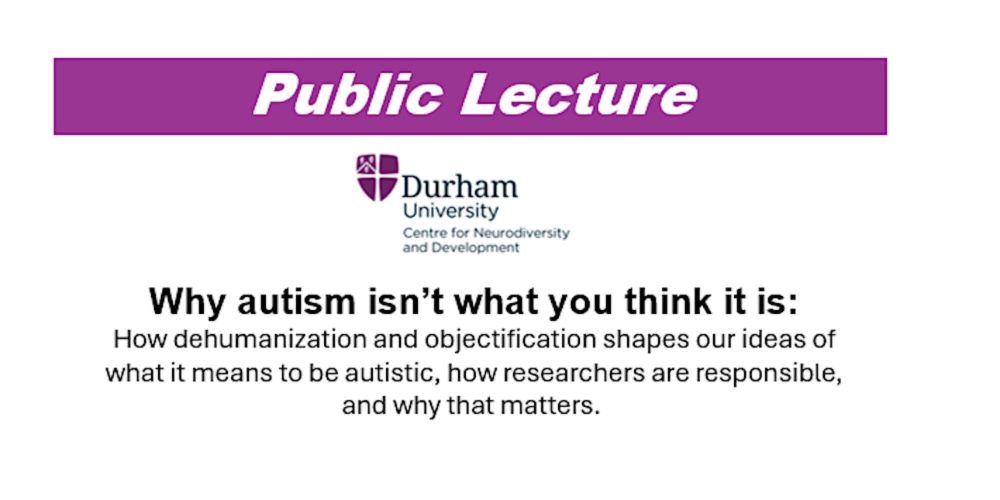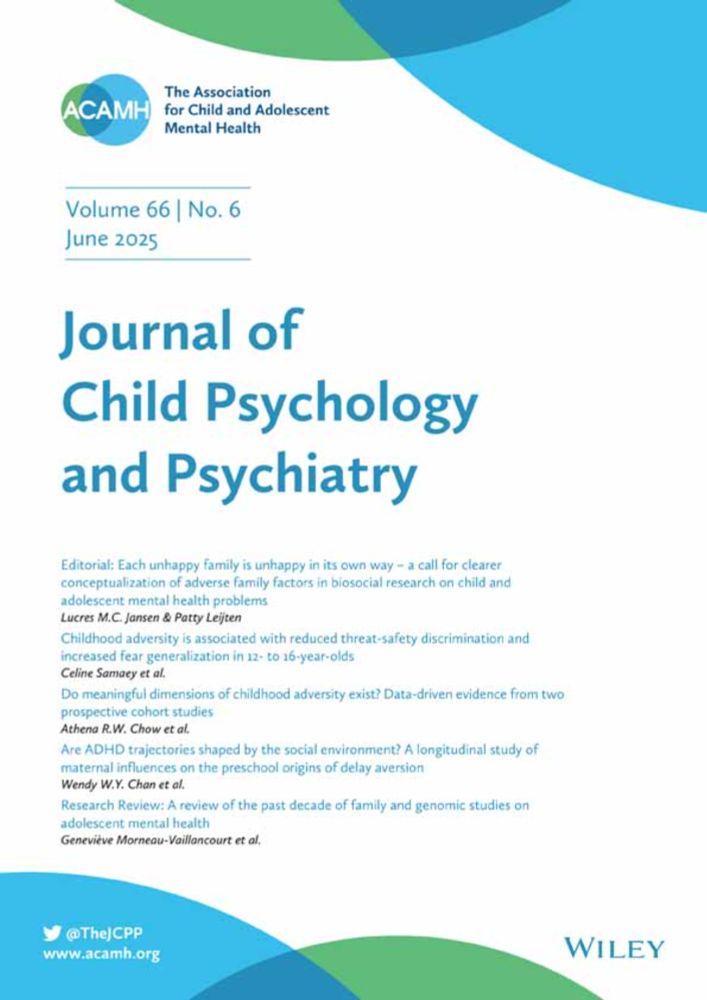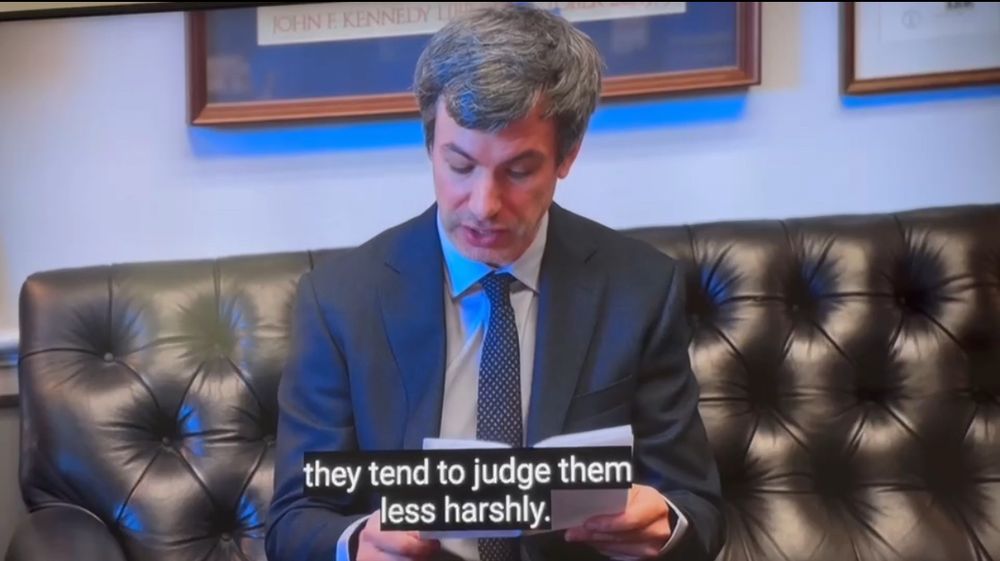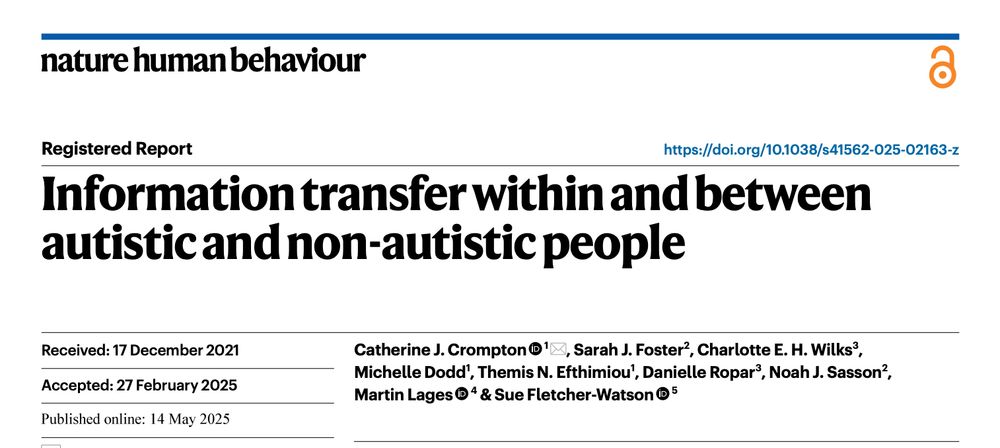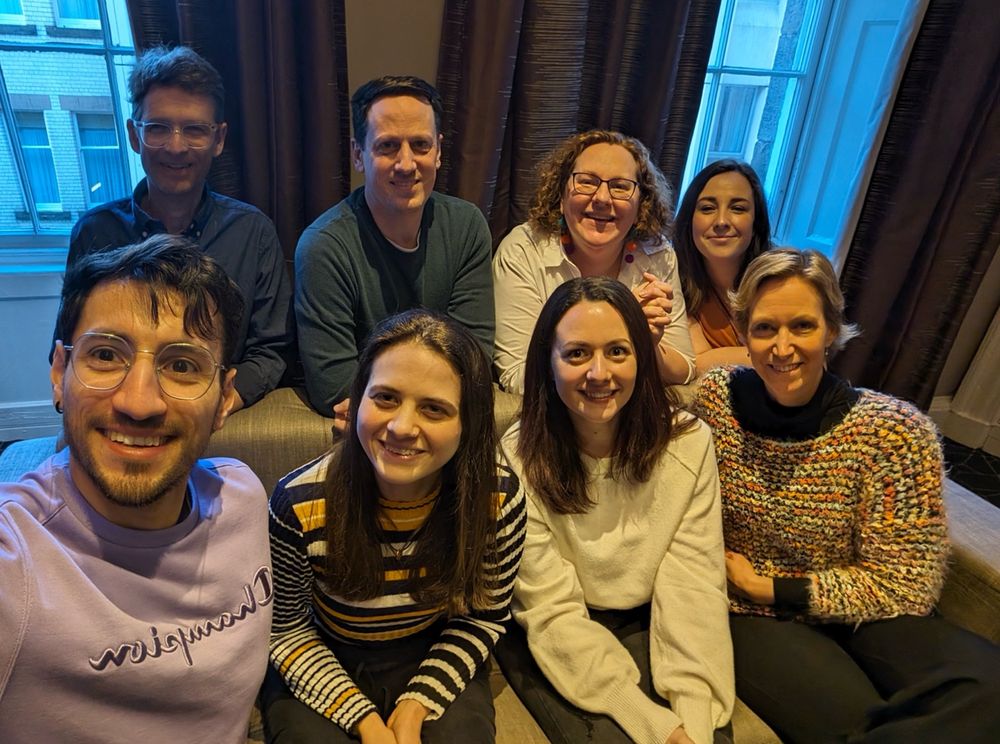Noah Sasson
@noahsasson.bsky.social
1.3K followers
140 following
36 posts
Professor of Psychology at the University of Texas at Dallas. I run the Social Cognition and Interaction in Autism lab.
Posts
Media
Videos
Starter Packs
Reposted by Noah Sasson
Desi Jones
@desirjones.bsky.social
· Sep 8
Noah Sasson
@noahsasson.bsky.social
· Sep 8
Desi Jones
@desirjones.bsky.social
· Sep 8

“I’m Kind of Stuck in the Middle. I Don’t Know Where to Go”: Race, Autism, and Intersectional Stigma Among Black and White Autistic Adults | Autism in Adulthood
Background: Autistic adults frequently experience social stigma, which may be compounded by additional marginalized identities such as race, gender, and sexual orientation. Black autistic adults, in particular, may face unique challenges at the intersection of racial bias and autism stigma. However, the experiences of autistic people with intersecting marginalized identities remain underexplored in research, contributing to a limited understanding of stigma’s impact across diverse communities. Methods: We used qualitative methods to explore how intersecting identities shape autistic adults’ experiences of stigma and marginalization, with an emphasis on Black autistic adults. In total, 32 autistic adults (16 Black and 16 White) completed a semi-structured interview regarding their social experiences. Participants shared recent stories of peer exclusion, acceptance, discrimination, and support that they had experienced, as well as their feelings surrounding these events. We recorded and transcribed these interviews and used an inductive, or data-driven, approach to thematic analysis to identify salient themes in the data. Results: We generated three intersectional themes, which encompassed the unique impact of stigma on those with intersecting identities. Specifically, these themes included: (1) identity-based discrimination shaped by race, gender, and LGBTQ+ status; (2) challenges in obtaining and processing an autism diagnosis; and (3) difficulties navigating personal identity, particularly among Black autistic participants. While autistic adults broadly reported stigma experiences, Black participants often described layered forms of exclusion related to both their race and autistic traits. Across racial groups, women and LGBTQ+ participants also reported distinct forms of marginalization and erasure. Conclusion: These findings highlight how autism stigma intersects with other marginalized identities to shape social experiences. Black autistic adults, along with autistic women and LGBTQ+ autistic people, may encounter compounded barriers to acceptance, identity development, and belonging. These results underscore the need for more inclusive research and supports that attend to the diversity of autistic experiences.
www.liebertpub.com
Reposted by Noah Sasson
Themis Efthimiou
@themisefth.bsky.social
· Aug 29
Reposted by Noah Sasson
Themis Efthimiou
@themisefth.bsky.social
· Aug 29
Reposted by Noah Sasson
Themis Efthimiou
@themisefth.bsky.social
· Aug 29

Diagnostic status influences rapport and communicative behaviours in dyadic interactions between autistic and non-autistic people
A growing body of research suggests that the behaviours and experiences of autistic and non-autistic people are influenced by whether they are interacting with someone of the same or different diagnos...
doi.org
Reposted by Noah Sasson
Noah Sasson
@noahsasson.bsky.social
· Aug 22
Reposted by Noah Sasson
Reposted by Noah Sasson
Reposted by Noah Sasson
Michelle Dawson
@autismcrisis.bsky.social
· Aug 15

Visuospatial information transfer and task self-assessment within and between autistic and non-autistic adults
Previous research has demonstrated that autistic people transmit verbal information as effectively as non-autistic people; however, when autistic and non-autistic people interact less information is t...
journals.plos.org
Noah Sasson
@noahsasson.bsky.social
· Jul 19
Reposted by Noah Sasson
Reposted by Noah Sasson
Reposted by Noah Sasson
Noah Sasson
@noahsasson.bsky.social
· May 16

Autism Researchers’ Rapport Study Refutes Social-Deficit Model
Psychology doctoral student Sarah Foster, who is autistic, is the corresponding author of a study that examined four-person group interactions among neurotypical, autistic and mixed groups of individu...
news.utdallas.edu
Reposted by Noah Sasson
Noah Sasson
@noahsasson.bsky.social
· May 15






